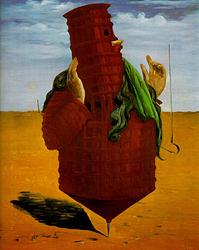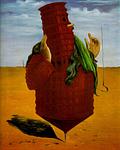King Ubu by Alfred Jarry
"King Ubu" is a satirical play that centers around the grotesque and absurd character, Père Ubu, who is manipulated by his ambitious wife to seize power in Poland. Once king, Ubu's reign is marked by greed, cruelty, and incompetence, leading to chaos and violence. The play employs absurdity and farce to critique power and corruption, using exaggerated characters and surreal scenarios to highlight the folly and destructiveness of tyrannical rule. This pioneering work is often considered a precursor to the Theatre of the Absurd and has had a lasting influence on avant-garde theatre.
The 1735th greatest book of all time
Ranking Details:
Our ranking system awards points to books based on their appearance and position on curated lists. Here's how it works:
Unranked Lists: For lists without specific rankings, each book receives points equivalent to the list's weight. This approach recognizes the book's inclusion on prestigious lists.
Ranked Lists: Books on ranked lists receive points in two ways:
- Base Points: Initially, every book is awarded points equal to the list's weight, acknowledging its significance.
- Bonus Points: Additionally, books earn bonus points based on their ranking. The total bonus pool, equal to 100% of the list's weight, is distributed among the books, with higher-ranked books receiving more points.
Exponential Distribution: The distribution of bonus points follows an exponential model. This means the top-ranked book (#1) receives significantly more bonus points than those further down the list (e.g., #100). Our algorithm ensures that higher placements are rewarded more generously, reflecting the achievement of a top rank on any given list.
This scoring system ensures that each book's ranking reflects both its presence on multiple lists and its positions within those lists, providing a comprehensive measure of its acclaim and popularity.
Total Points: 220
Since this book was first published in 1896, there is a penalty of 0%. The age adjusted score is 220.0.
This is to prevent newer books from reaching super high on the ranked list of the greatest books of all time. The greatest books should also stand the test of time.
- score: 121 -- Pour une Bibliothèque Idéale (Weight: 120)
- score: 78 -- The 500 best books of all time from Culture Café users (Weight: 78)
- score: 21 -- The Drama 100 - A Ranking of the Greatest Plays of All Time (Weight: 21)

